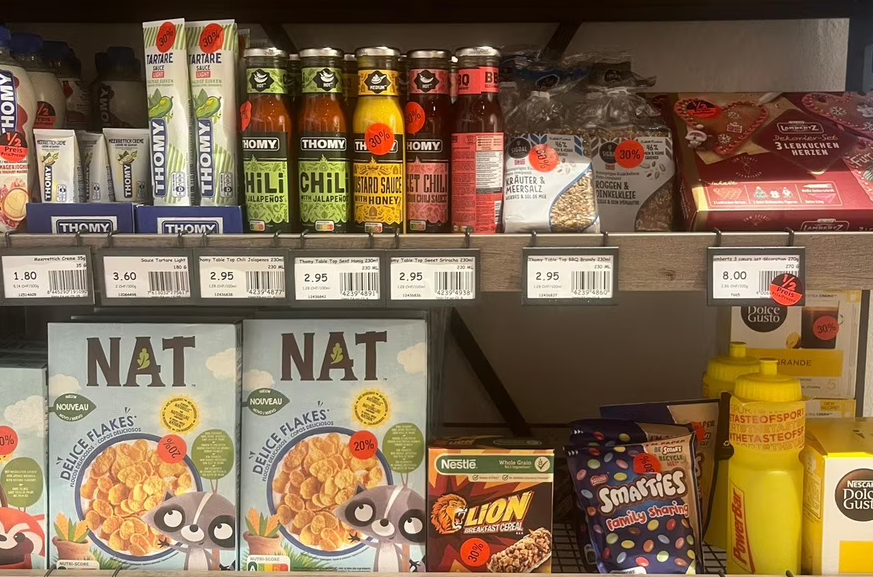Illustrative photo taken at the Nestlé Shop in Kemptthal, Switzerland. swissinfo.ch/Dominique Soguel In response to Russia’s war on Ukraine, the Swiss multinational Nestlé announced that it would reduce its range of product in Russia to “essential” goods such as baby milk. But supermarket shelves in Moscow paint a different picture, according to the NZZ. The world’s largest food and beverage company continues to sell and produce a wide range of food products, as well as recruit staff in Russia, the Swiss German-language newspaper reported on Saturday. The newspaper’s Moscow correspondent observed a broad range of well-known products from the Swiss consumer goods group at Russian supermarket shelves. The article also noted that there is no shortage of foreign
Topics:
Swissinfo considers the following as important: 3.) Swissinfo Business and Economy, 3) Swiss Markets and News, Featured, Latest News, newsletter
This could be interesting, too:
Nachrichten Ticker - www.finanzen.ch writes Die Performance der Kryptowährungen in KW 9: Das hat sich bei Bitcoin, Ether & Co. getan
Nachrichten Ticker - www.finanzen.ch writes Wer verbirgt sich hinter der Ethereum-Technologie?
Martin Hartmann writes Eine Analyse nach den Lehren von Milton Friedman
Marc Chandler writes March 2025 Monthly

Illustrative photo taken at the Nestlé Shop in Kemptthal, Switzerland. swissinfo.ch/Dominique Soguel
In response to Russia’s war on Ukraine, the Swiss multinational Nestlé announced that it would reduce its range of product in Russia to “essential” goods such as baby milk. But supermarket shelves in Moscow paint a different picture, according to the NZZ.
The world’s largest food and beverage company continues to sell and produce a wide range of food products, as well as recruit staff in Russia, the Swiss German-language newspaper reported on Saturday.
The newspaper’s Moscow correspondent observed a broad range of well-known products from the Swiss consumer goods group at Russian supermarket shelves. The article also noted that there is no shortage of foreign brands available at shops despite an exodus of Western companies triggered by the war.
“Nescafé, a very popular product in Russia, comes in many varieties,” writes Marcus Ackeret. He notes the same applies to Bystrow brand breakfast cereals, Maggi soups and bouillon cubes, Purina pet food, and Mövenpick ice cream. Many kinds of pralines, chocolate bars, baby and children’s food are also available. The product labels note these were made in Russian Nestlé factories.
The wide range of products available at Russian supermarkets suggests Nestlé – which the NZZ article says “declined to comment” – defines essential foods broadly. Many big brand names have pulled out of Russia on account of its invasion of Ukraine. On March 11, 2022 Nestlé outlined how it had restricted its business dealings in the nation widely condemned for invading its neighbour. But it still has come under heavy criticism on social media and by Ukraine’s top officials for doing business in Russia.
The NZZ observes that there are no indications that local Nestlé factories have stopped production or carried out “major rounds of layoffs”. Before the outbreak of war, Nestlé operated seven factories in the country. In total, the Swiss group employed around 7,000 people in Russia in 2021. Nestlé’s Russian subsidiary seems to be continuing to recruit staff with 110 Nestlé Russia vacancies advertised on Headhunter.ru , one of the country’s most important online job portals.
Tags: Featured,Latest news,newsletter
